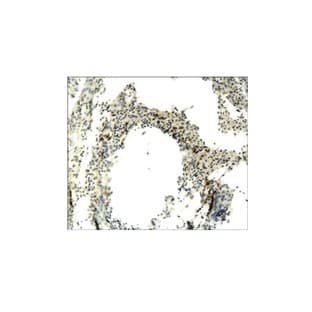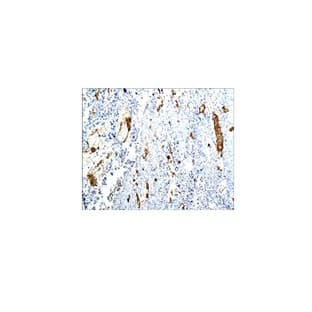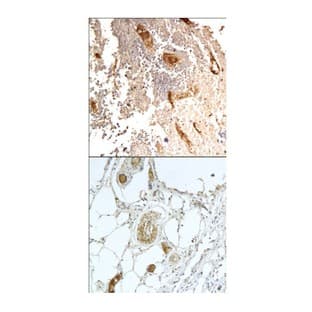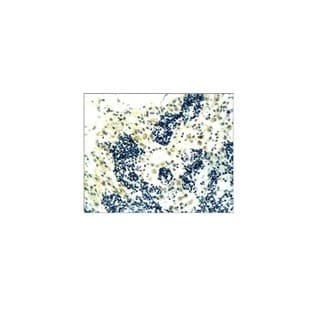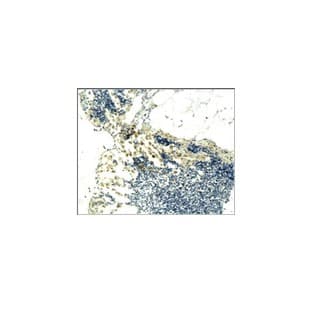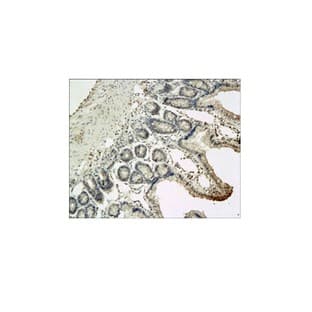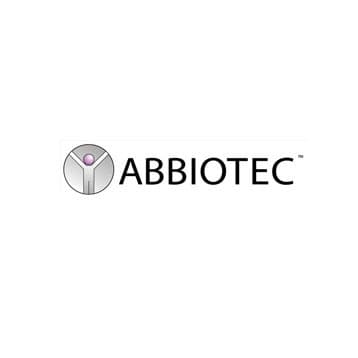
Supplier:
ABBIOTECCat no: 252902
PROZ (2B4) Antibody
Prices direct from ABBIOTEC
Quick response times
Exclusive Absave savings/discounts
SPECIFICATIONS
Catalog Number
252902
Size
0.1 ml
Applications
WB
Reactivities
Hum
Format
Each vial contains 0.1 ml ascitic fluid with 0.03% sodium azide.
P Type
Mouse Monoclonal Antibody
Antigen
Purified recombinant fragment of PROZ e, Xenopus/Amphibian,pressed in E. coli.
Isotype
Mouse IgG1
Accession
P22891
Clonality
2B4
Additional Info
Vitamin K-dependent protein Z; PROZ
More from ABBIOTEC
Latest promotions
Buy any polyclonal or monoclonal antibody from our extensive range of pre-made antibodies and for a limited time only receive a $50 discount!(T&C apply:...
New brilliant antibodies, and new lower prices!For flow cytometry reagents in general, \"bright is better.\" The violet-excitable BD Horizon™ BV421 and...
10% Discount on 2 Rabbit Polyclonal Antibody Service. With over 20 years experience, SDIX has developed into the premier US custom antibody producer,...
For the past decade scientists have extensively used ATS secondary toxin conjugates to make their own targeted toxins for in vitro use.The ability to combine...
We're so sure that you'll prefer Cayman Assay kits over your present brand that we're willing to give you a free assay kit to prove it!
Did your supplier increase the price of Fetal Bovine Serum? Did they substitute the US Origin with USDA? Well say no more! Innovative Research is still...
Bulk Cytokines with Custom Vialing.20 - 50% off cytokines, growth factors, chemokines and more...For a limited time Cell Sciences is offering substantial...
Are you planning to have a customised antibody made for your research?Since 2000, Everest has been producing a catalog containing thousands of affinity...
Top suppliers
Agrisera AB
11 products
Biotrend
Biosensis
969 products
ABBIOTEC
3011 products
SDIX
1 products
Spring Bioscience
2291 products
Cell Signaling Technology
4976 products
Rockland Immunochemicals, Inc.
7592 products
Boster Immunoleader
1533 products
OriGene Technologies Inc.
5281 products
Maine Biotechnology Services
227 products
BD (Becton, Dickinson and Company)
1 products
ABNOVA CORPORATION
Randox Life Sciences
1502 products









